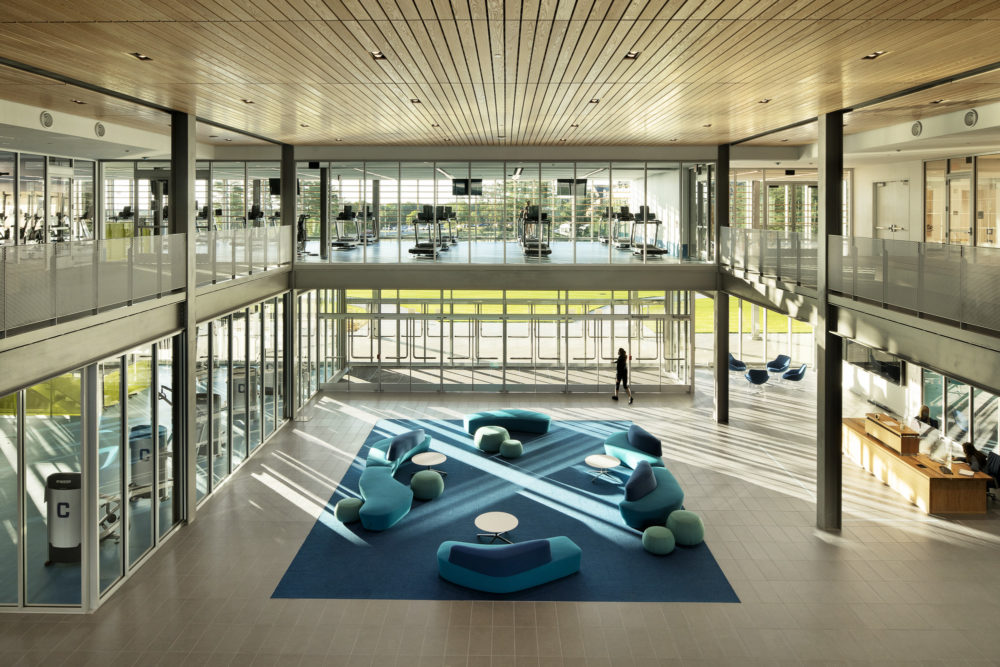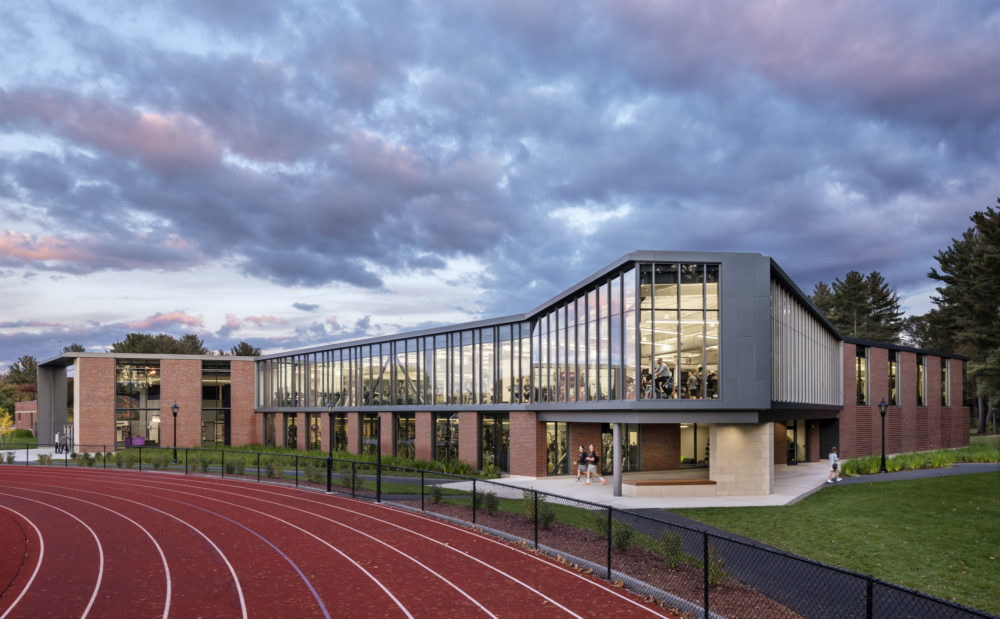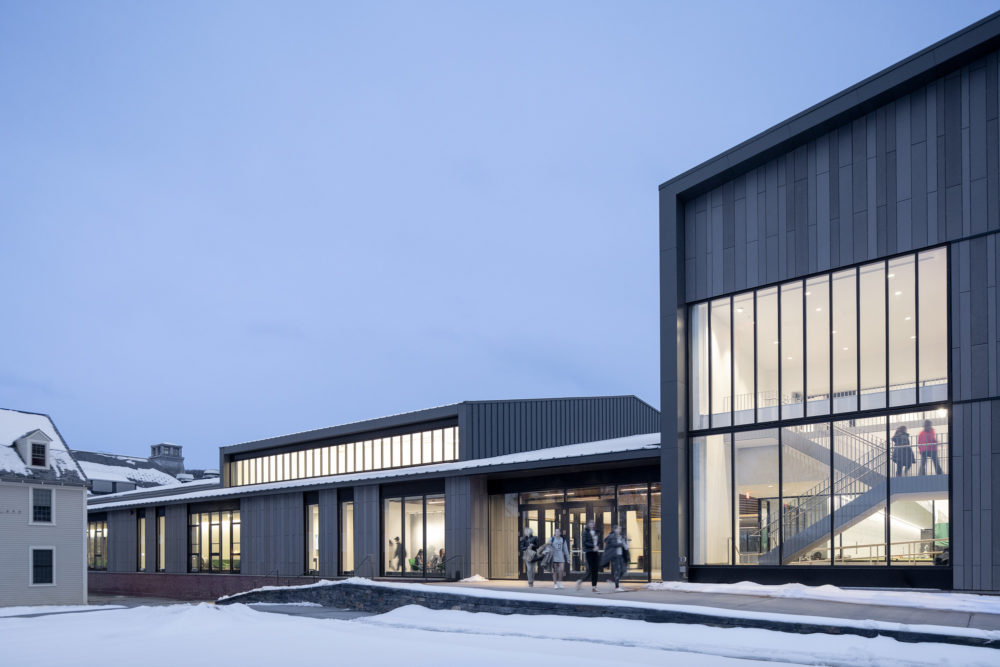A state-of-the-art branded athletics facility supporting students, student-athletes, alumni, and the local community through all seasons
Middlebury College Virtue Field House and Athletic District Plan
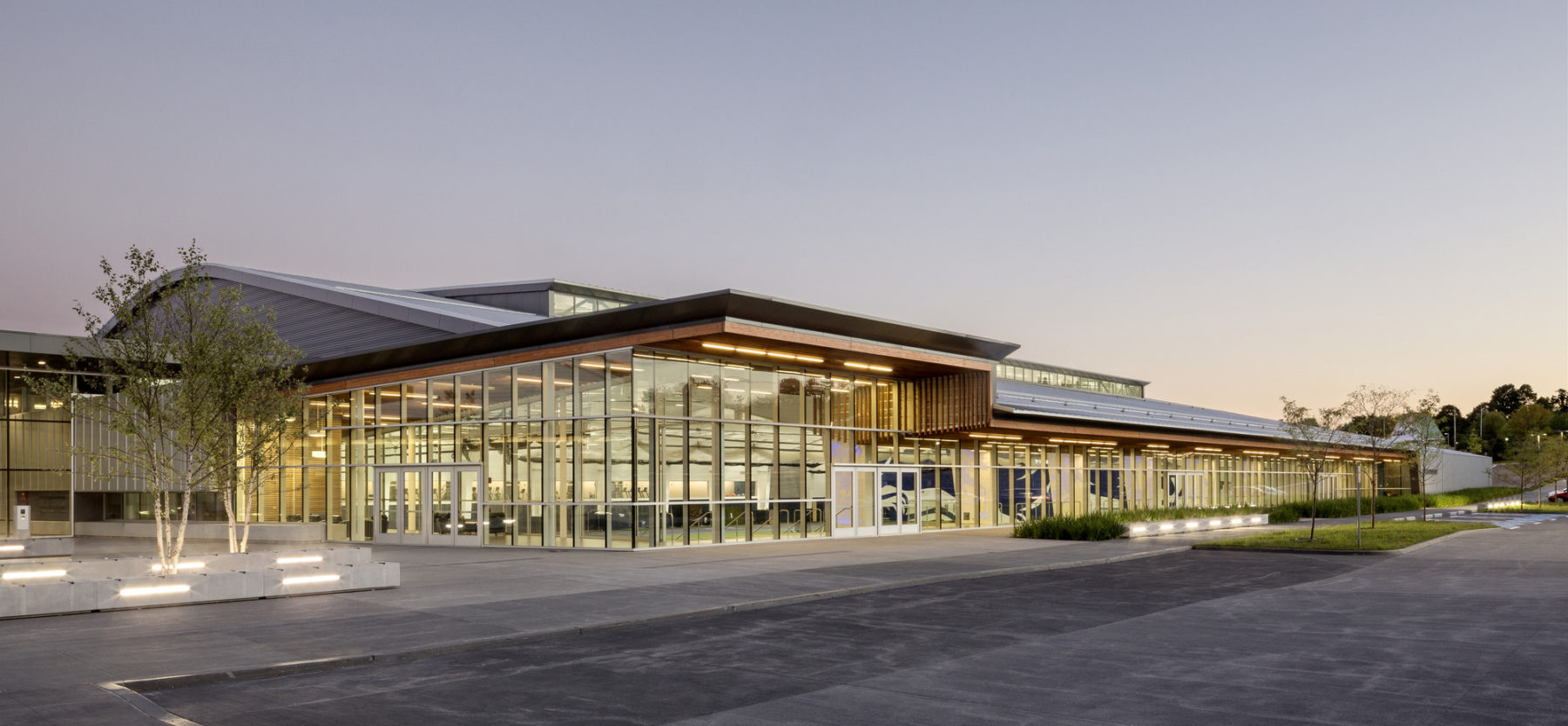
By increasing the width of the field house and placing the straight sprint lanes outside the track oval, the interior of the track became available for myriad different uses
The Virtue Field House for Middlebury College is one of the most unique training and competition venues in collegiate athletics. The flexible facility incorporates an indoor practice space, competition track, expanded recreation space, and improved spectator accommodations.
The 120,000-square-foot field house includes a 200-meter track and features over 20,000 square feet of athletic turf. The multi-use complex accommodates 500 spectators for sporting events and up to 5,000 people for large campus functions in an assembly configuration. The structure allows all athletic teams to practice indoors during inclement weather on a state-of-the-art performance surface and provides a much-needed large multi-purpose space that accommodates a variety of events such as NCAA track meets, intramural and recreational uses, and special campus and community functions. A rigorous master planning and programming effort determined the size and location of the facility, carefully considering the building’s relationship to the existing athletic center and outdoor fields. The plan also enhances critical outdoor spaces to better integrate the entire sports complex with the campus fabric.
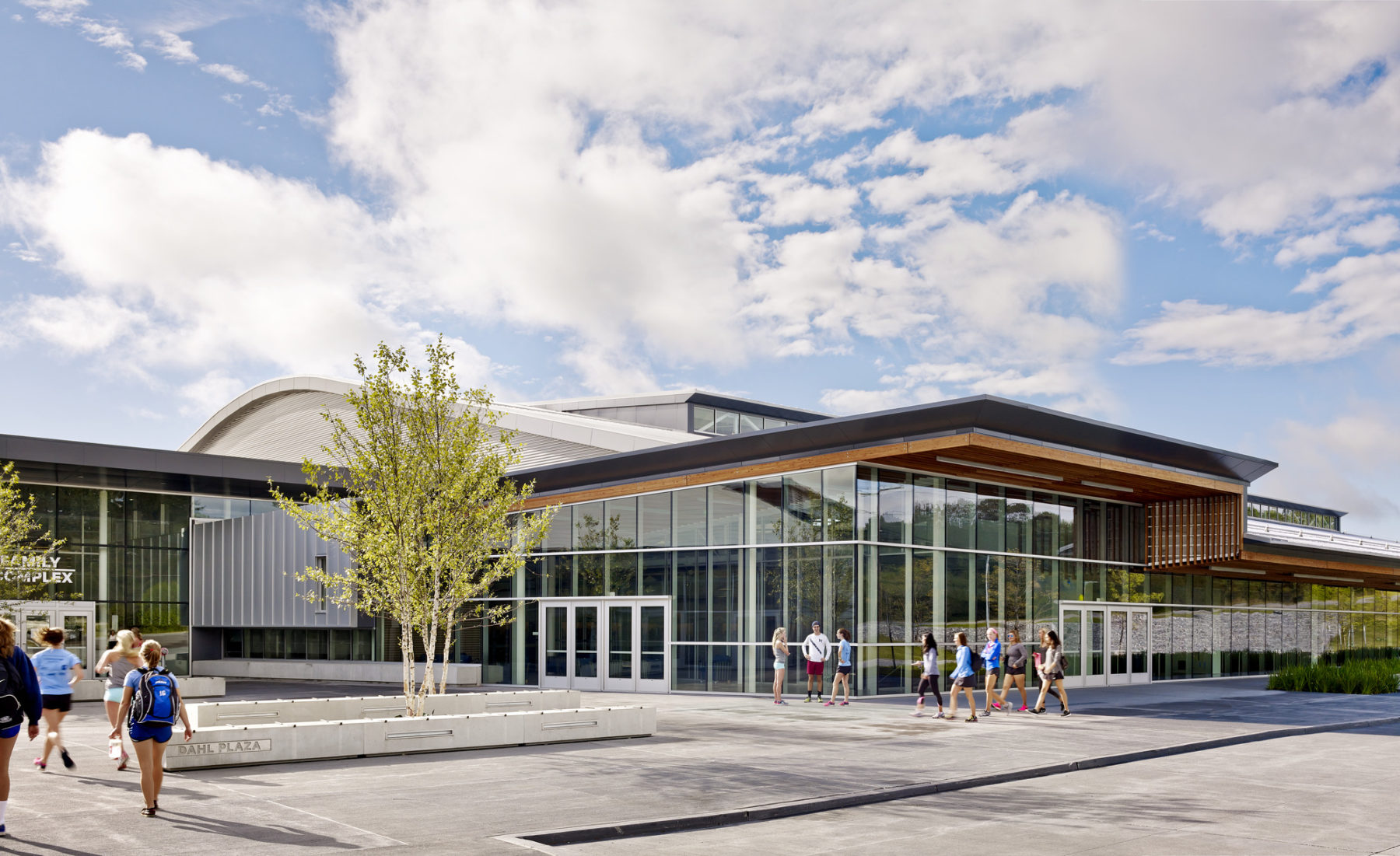
The design team took on the charge to design a field house that signals welcome to students, athletes, alumni, and the broader local community
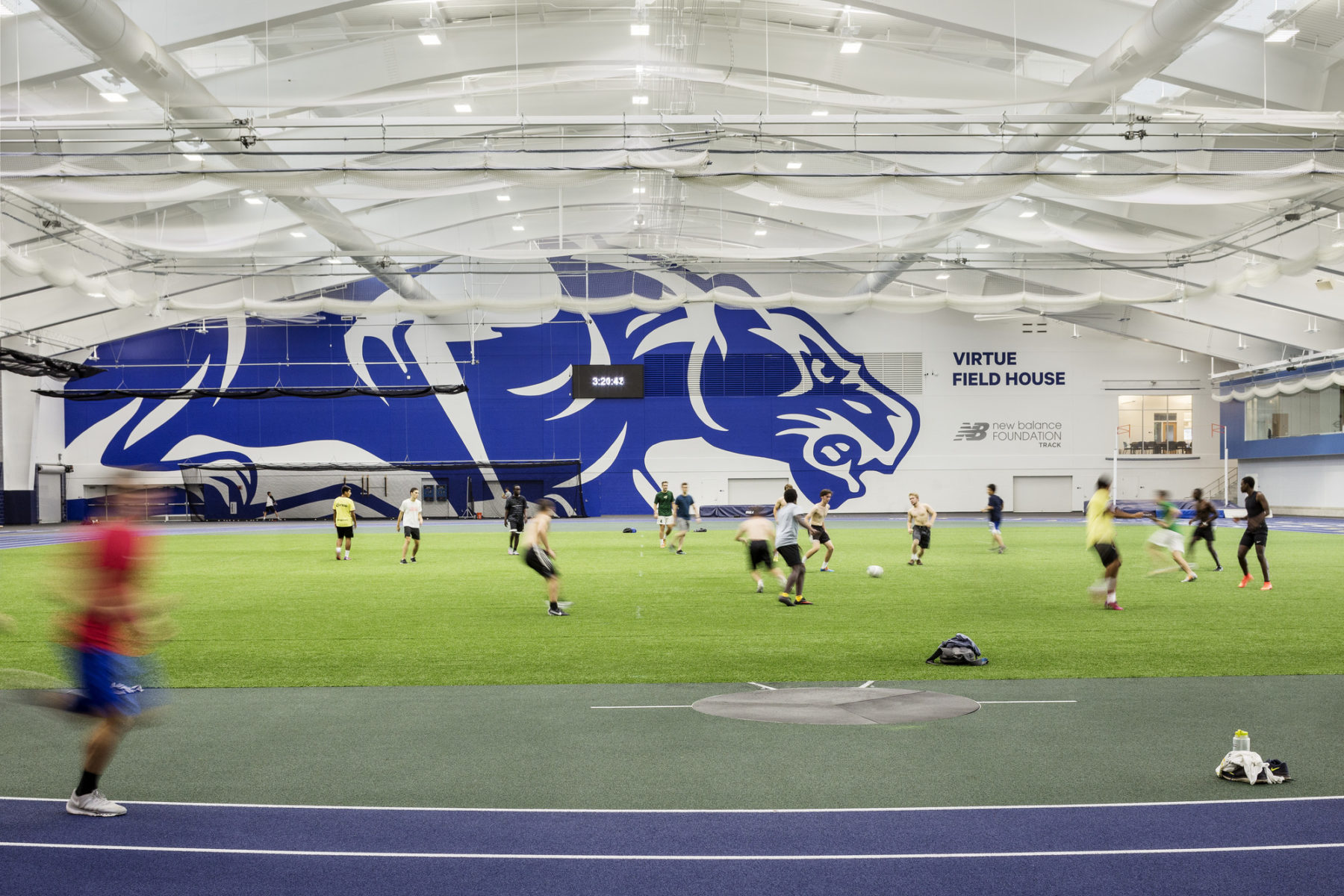
The college’s mascot looms over opponents and provides inspiration and pride to athletes. The installation was hand painted by local artists.
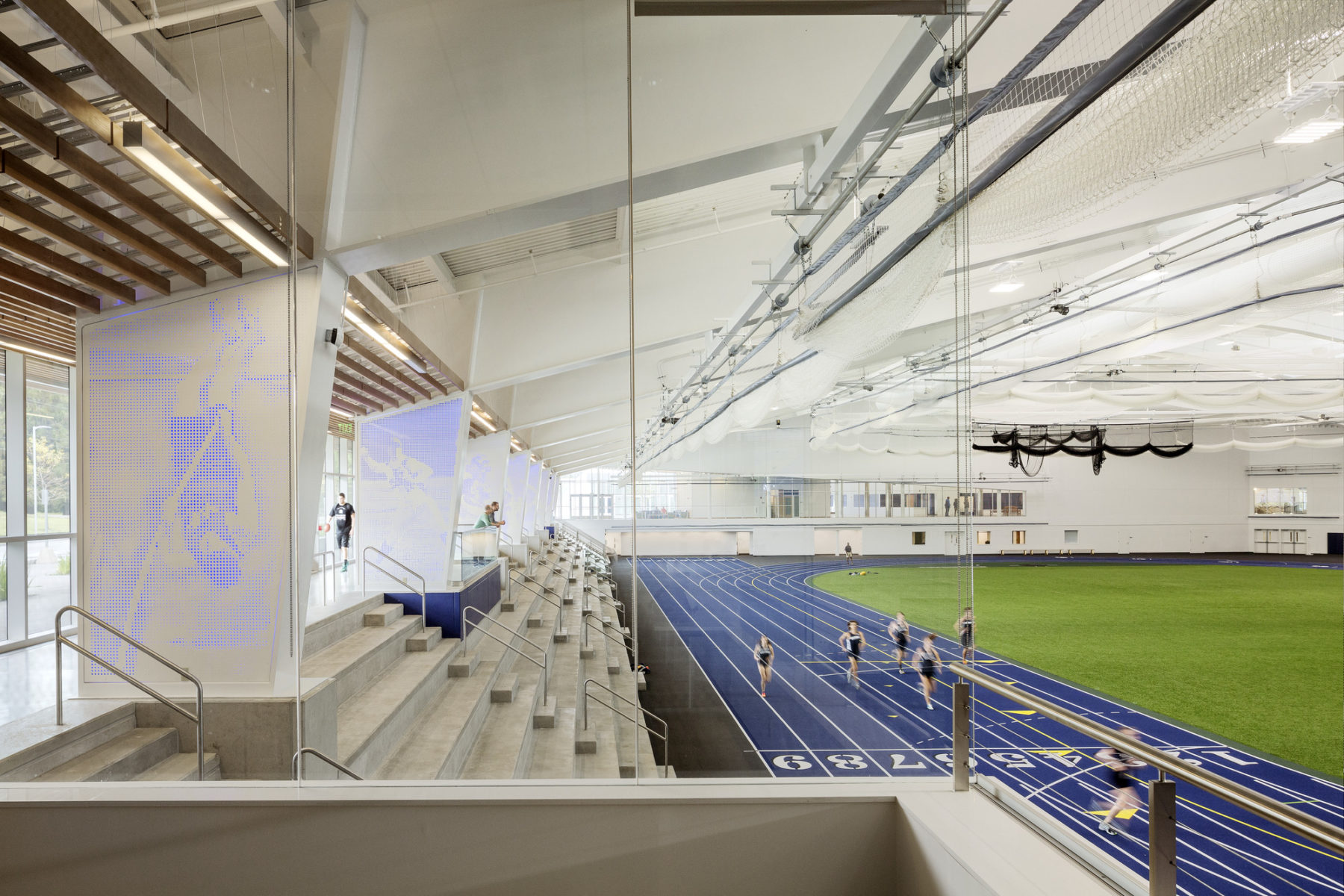
The design team prioritized the spectator experience to ensure the Field House is a convener for the entire Middlebury community
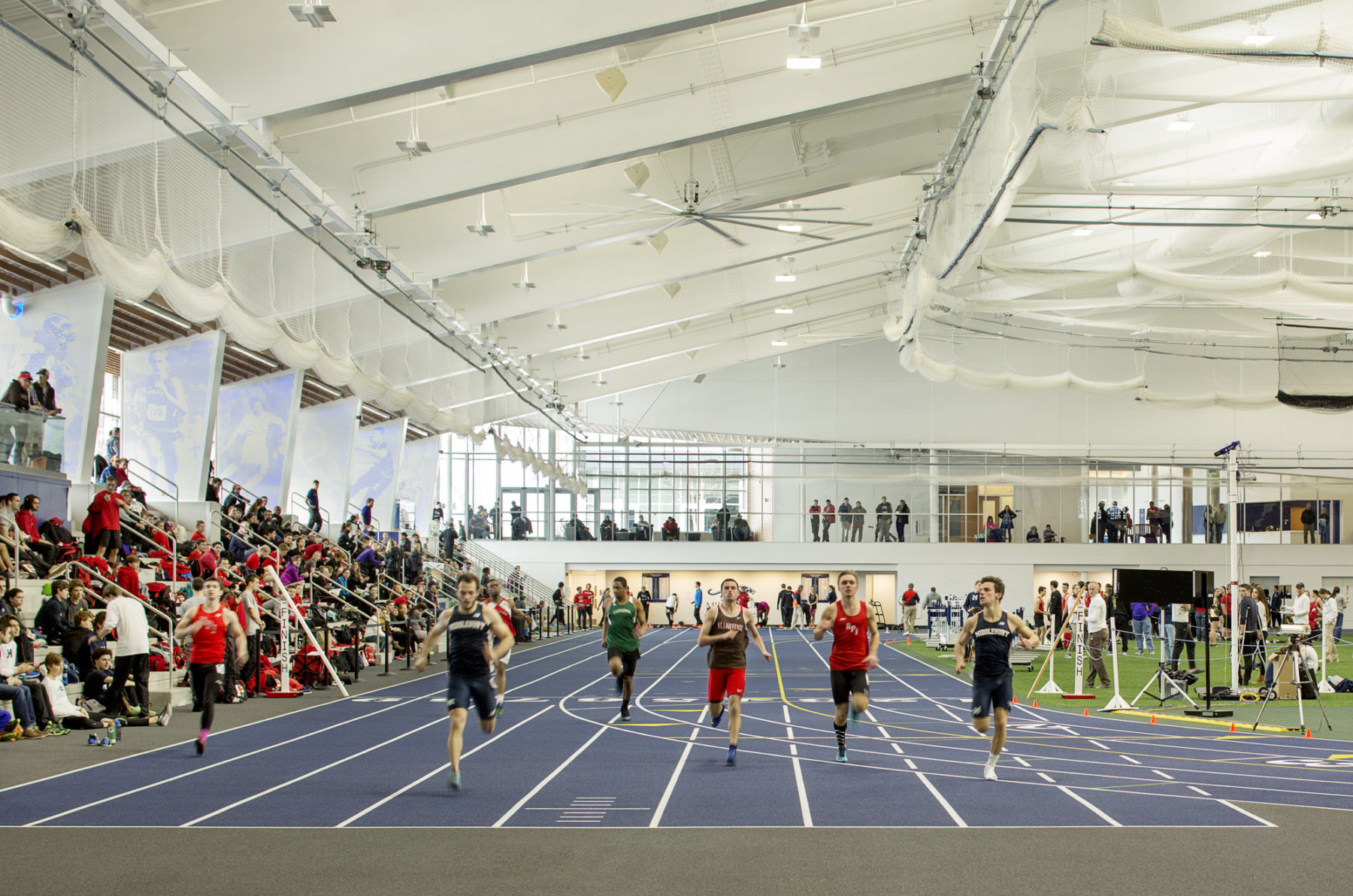
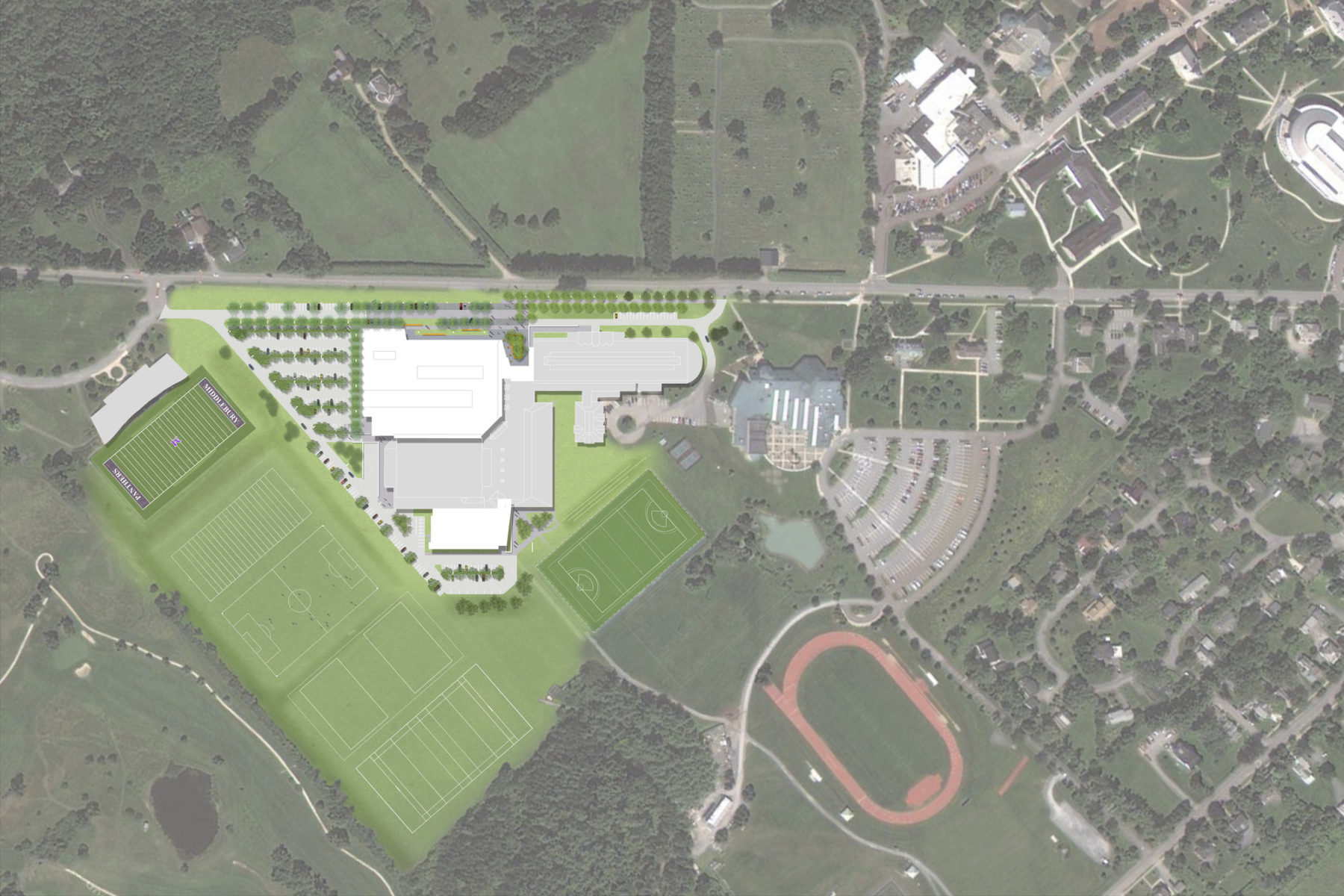
A rigorous master planning and programming effort determined the size and location of the facility, carefully considering the building’s relationship to the existing athletic center and outdoor fields
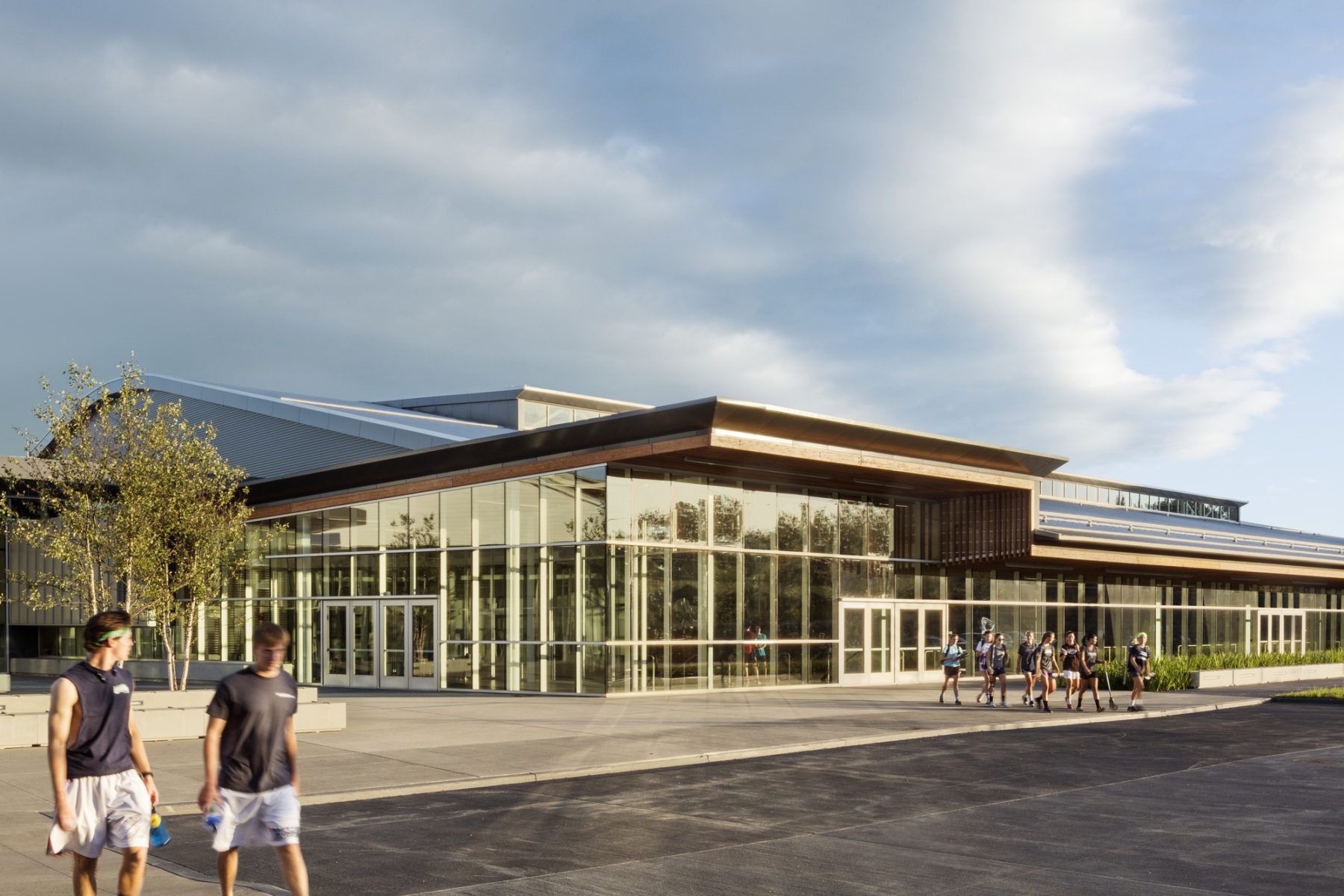
According to the college’s athletic director, “this project reimagines what a traditional field house can be—functionally and aesthetically— in support of the college’s goals of academic success, social engagement, physical health and well-being, and athletic excellence”
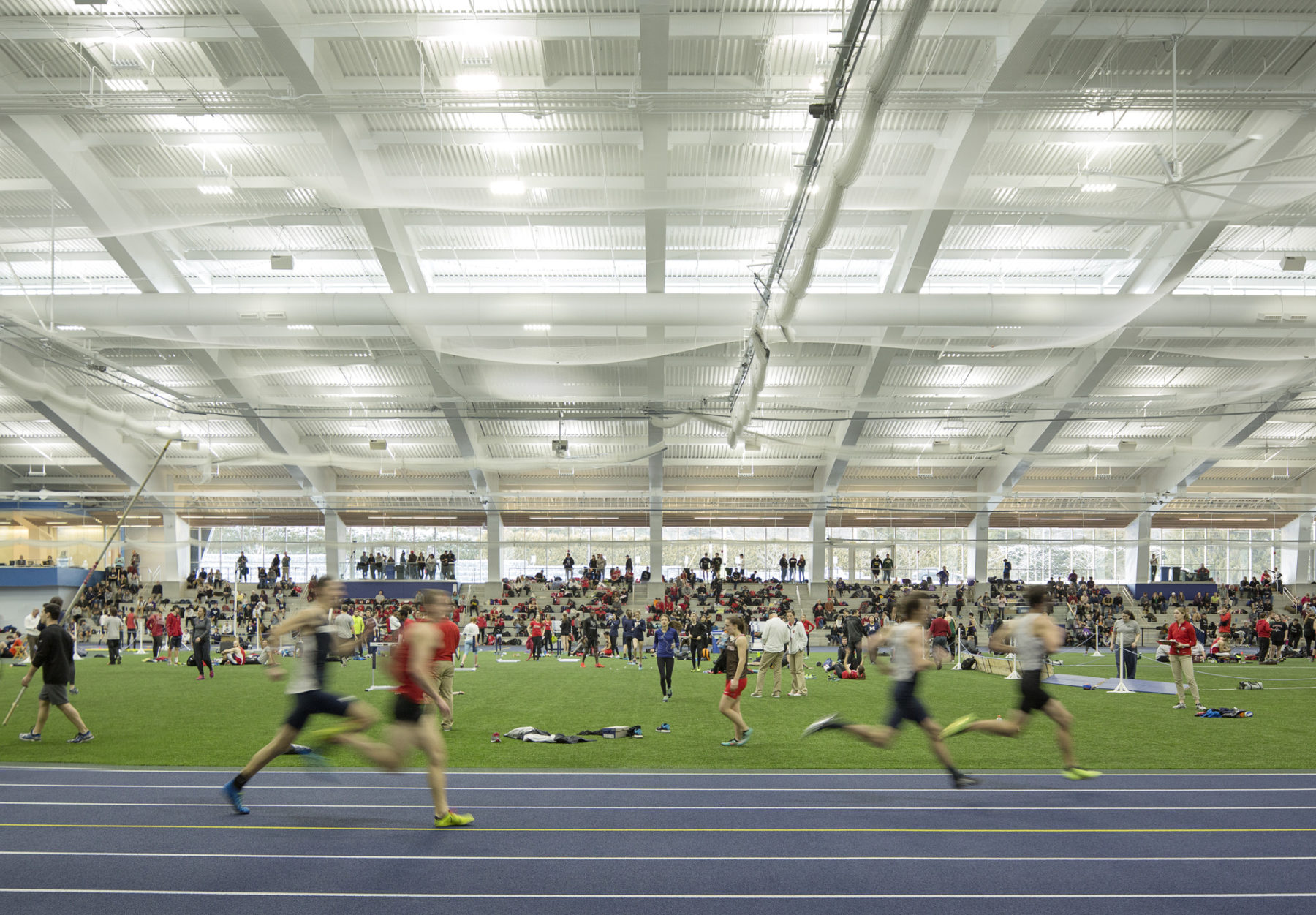
The facility has positioned the school to be able to host regional and NCAA indoor track and field events for the first time
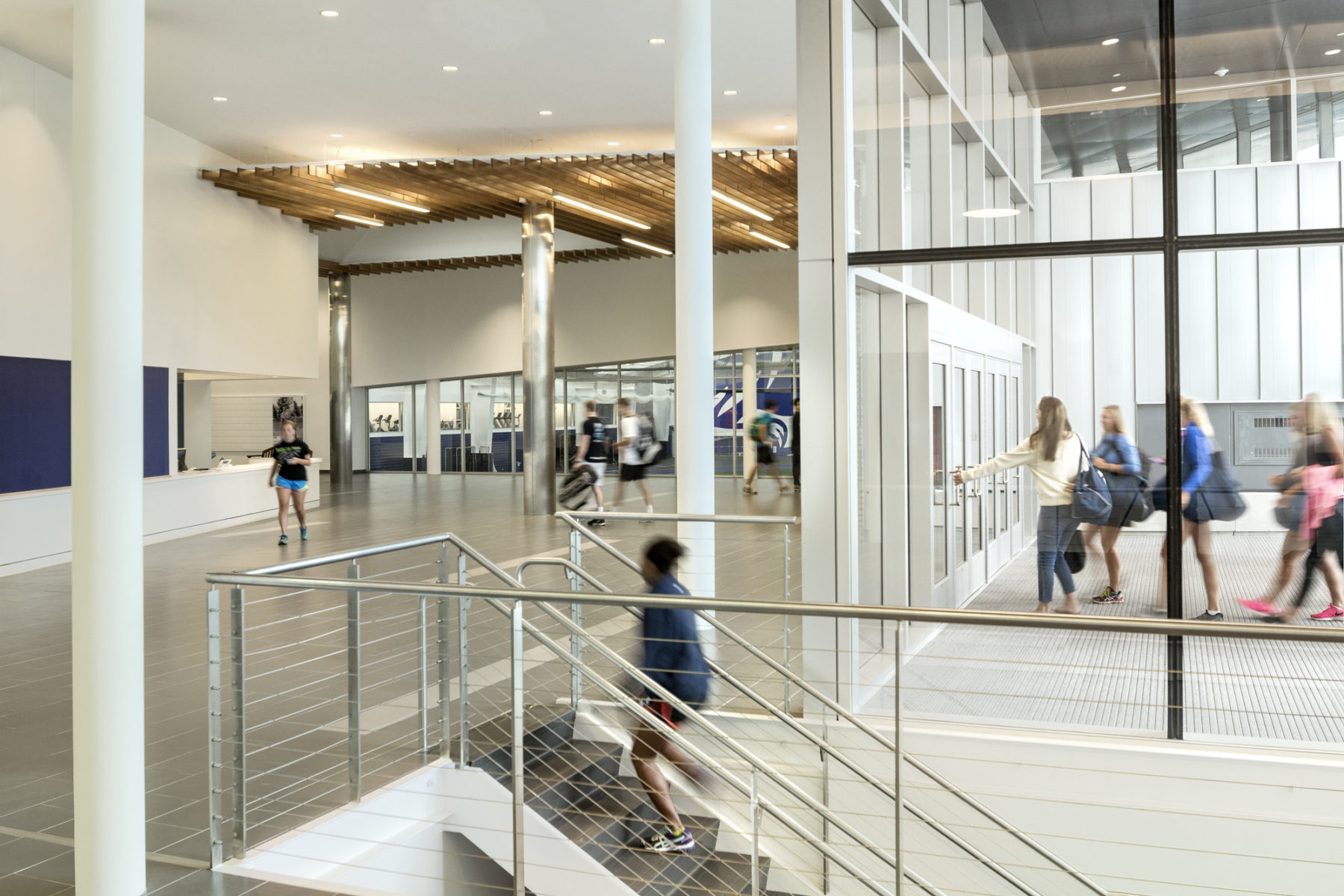
Upon entry, visitors to the 120,000 SF field house are greeted with a spacious lobby providing a single point access for each major venue housed in the sports complex
The project replaces the existing “bubble” – an athletics-only facility that housed an indoor competition track and floor space for field events. The new field house was an opportunity to better serve the entire College as well as the local community in Middlebury, Vermont. By increasing the width of the fieldhouse and placing the straight sprint lanes outside the track oval, the interior of the track became available for a myriad of different uses. Departing from the traditional installation of hard-top basketball or tennis courts within the track’s center, this area is covered in synthetic field turf—providing athletes with the unique opportunity to work on grass skills in temperate indoor space during Vermont’s colder seasons. The rest of the Middlebury community also benefits from the flexible, multi-purpose nature of the field house: intramural and club teams convene, friends gather to toss a Frisbee around, town neighbors come to walk or run, and children’s sports leagues take over for weekend games.
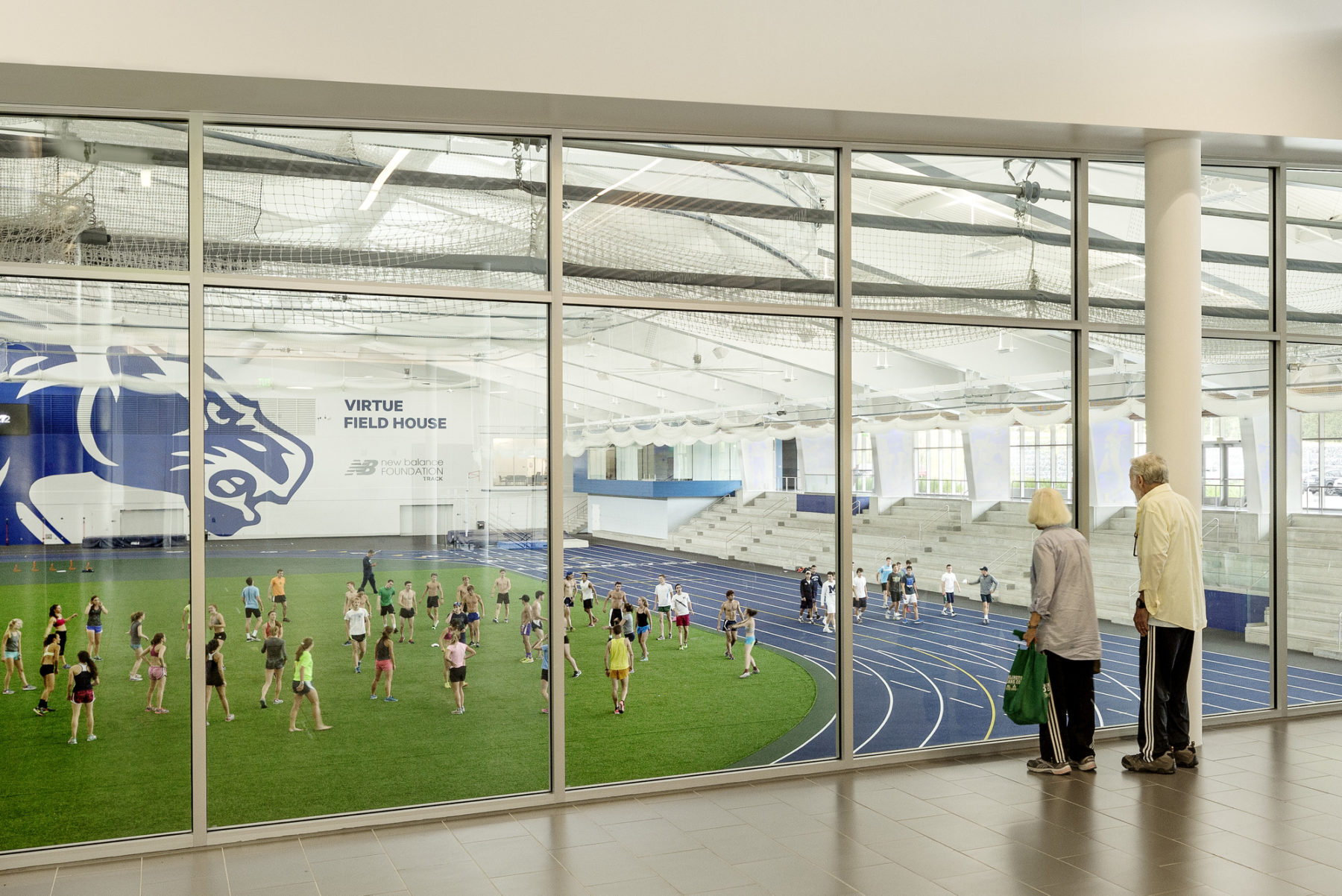
The surrounding community benefits from access to the flexible, multi-purpose field house. In the evenings and weekends, intramural and club teams convene, friends gather to toss a Frisbee around, town neighbors come to walk or run, and children’s sports leagues take over for weekend games.
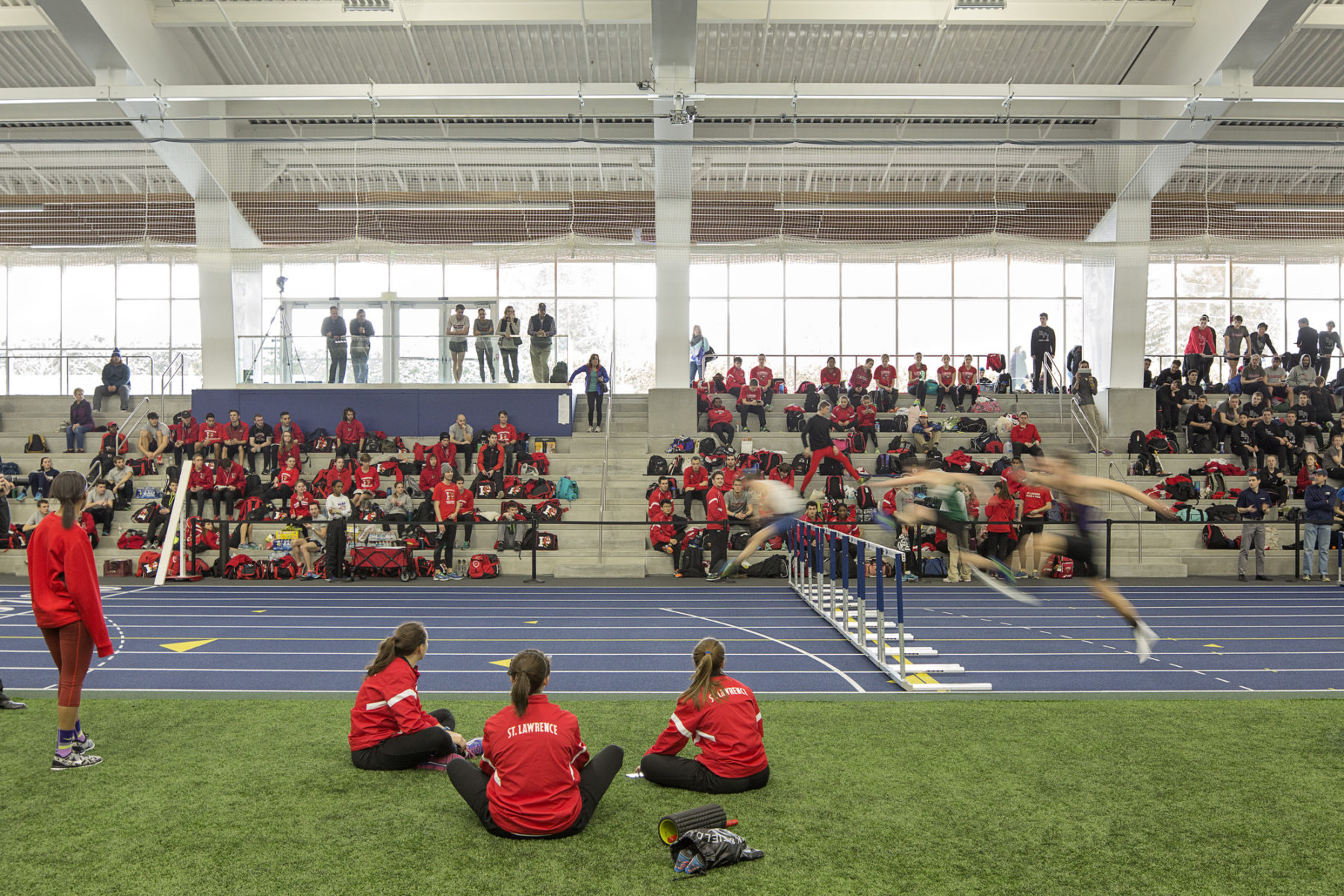
On meet day, spectators, are greeted by views directly into the dynamic, activity-rich field house
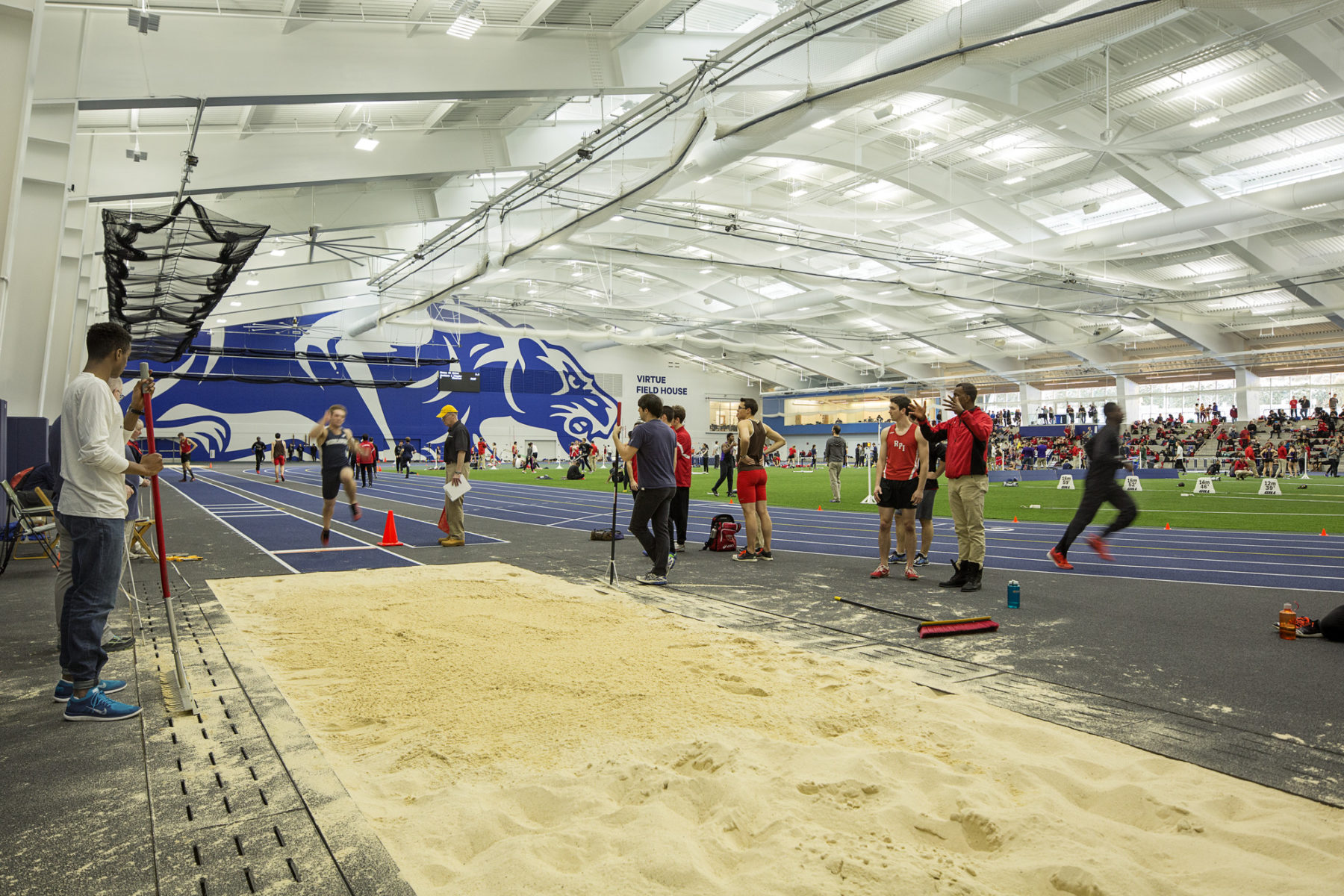
The facility supports a diverse range of track and field events
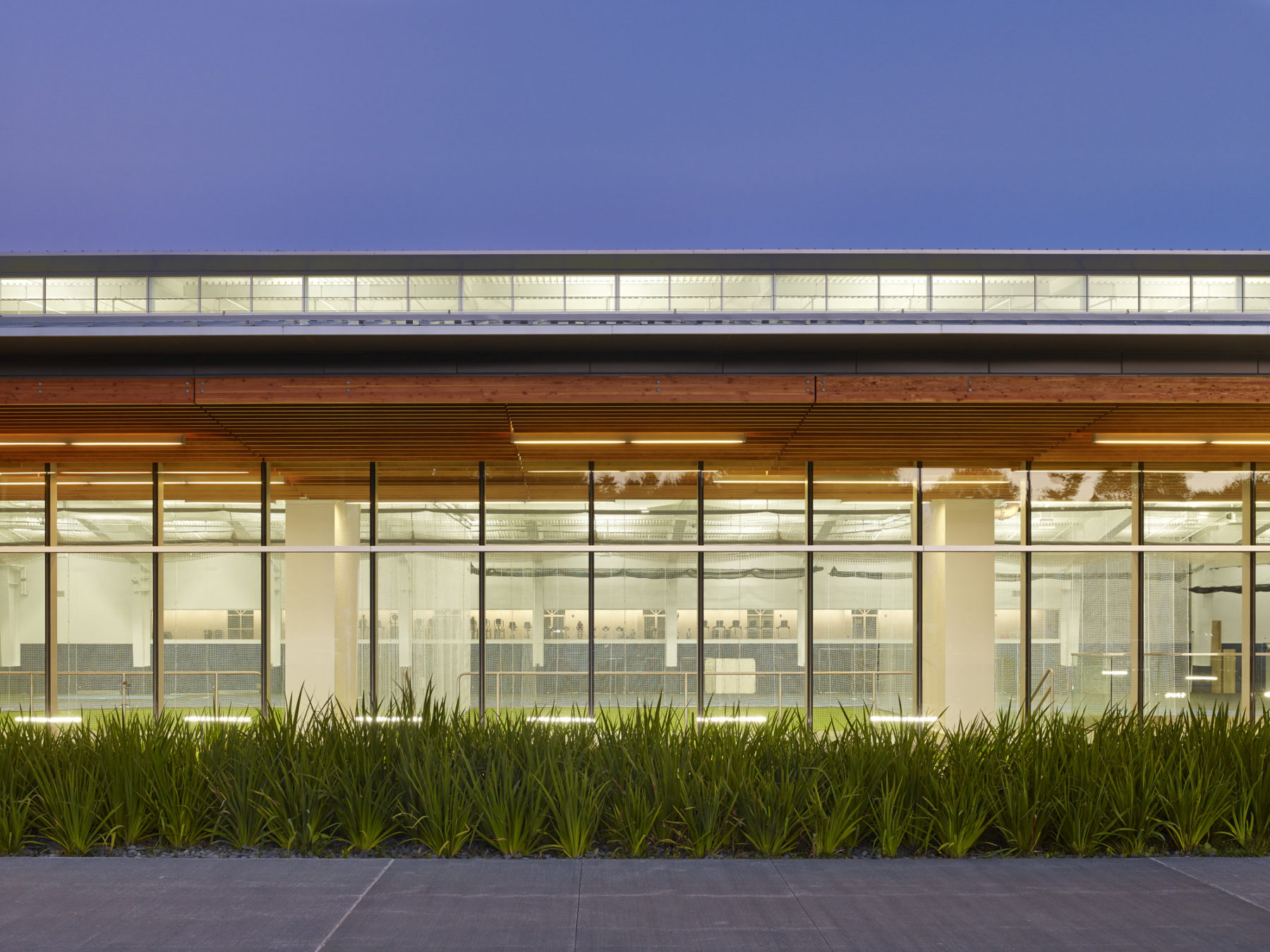
The Virtue Field House is a visual centerpiece of the Peterson Athletics Complex, situated along Route 30 on the southern edge of campus
On meet day, spectators, are greeted by views directly into the dynamic, activity-rich field house
The facility supports a diverse range of track and field events
The Virtue Field House is a visual centerpiece of the Peterson Athletics Complex, situated along Route 30 on the southern edge of campus
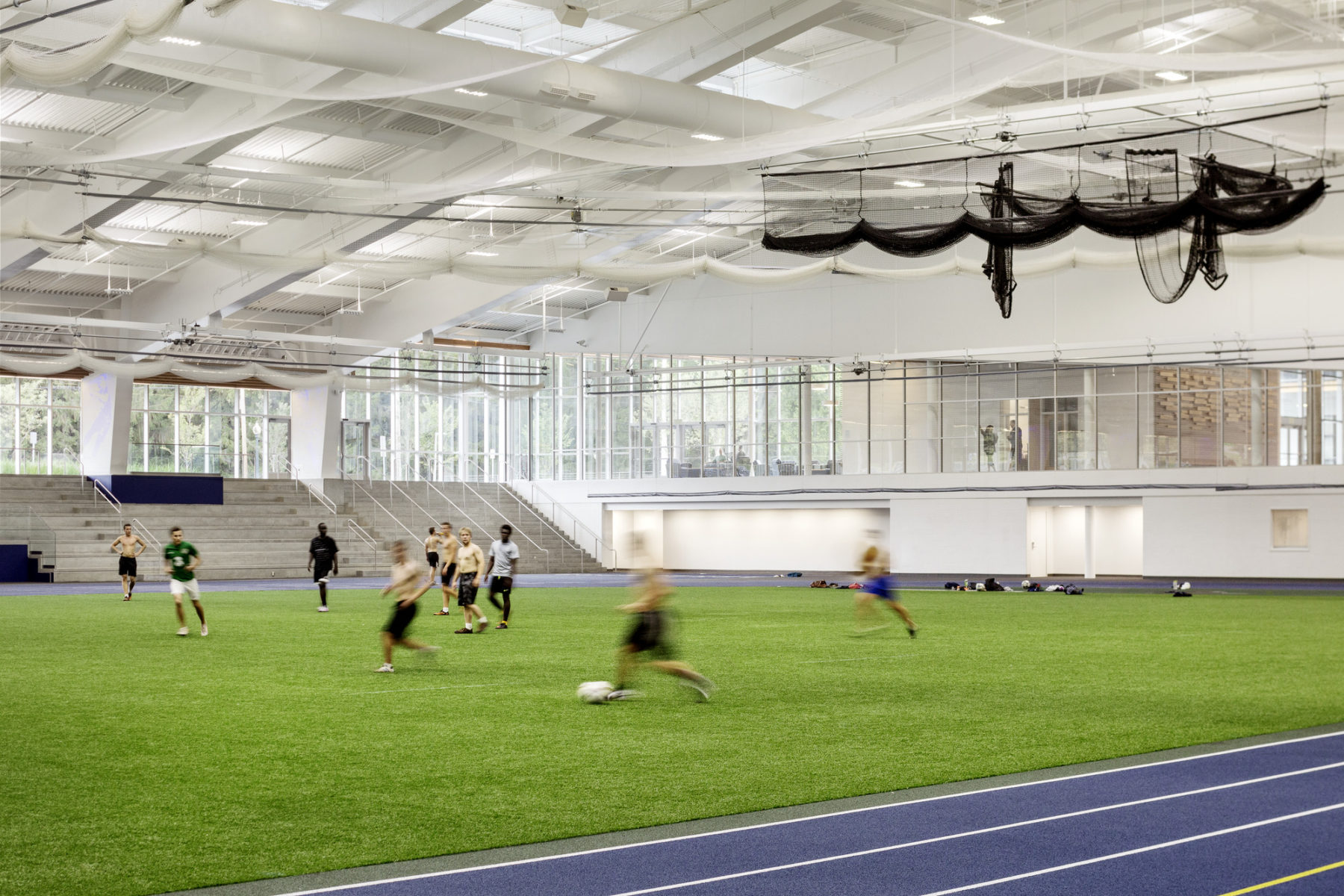
The 20,000 square foot field is covered in synthetic turf—a game changer for varsity athletics, intramural teams, and community sports leagues particularly given Vermont’s cold, snowy winters and muddy spring seasons
Set slightly apart from the main hub of Middlebury’s campus, the new field house needed to draw people in by externally projecting the energy and activity happening inside. The use of significant glazing along the front of the building provides clear views onto the track below and transforms the building into a beacon at night. Lowering the event floor 12 feet below grade mitigates the building’s significant height and mass, creating a complementary relationship with surrounding facilities and outdoor fields. An expanded entry lobby provides a single point of access for each of the major venues housed in the sports complex including the field house, ice arena, natatorium, basketball arena, squash center, and recreation facility. A hardscape plaza and tree-lined pedestrian promenade connects the facility to the main campus.
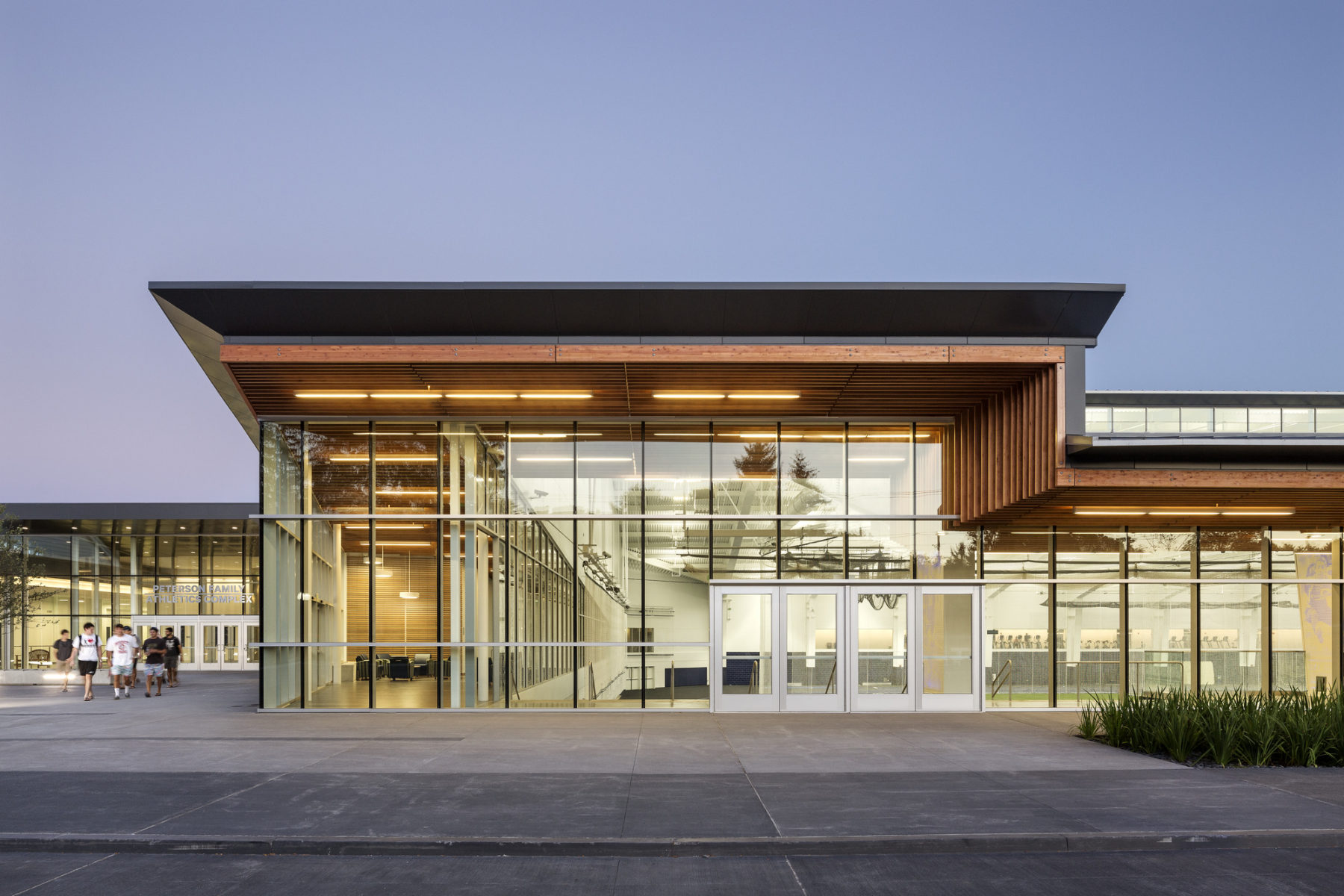
The designers employed significant glazing along the main façade—as the sun sets, the building literally becomes a beacon from the main campus
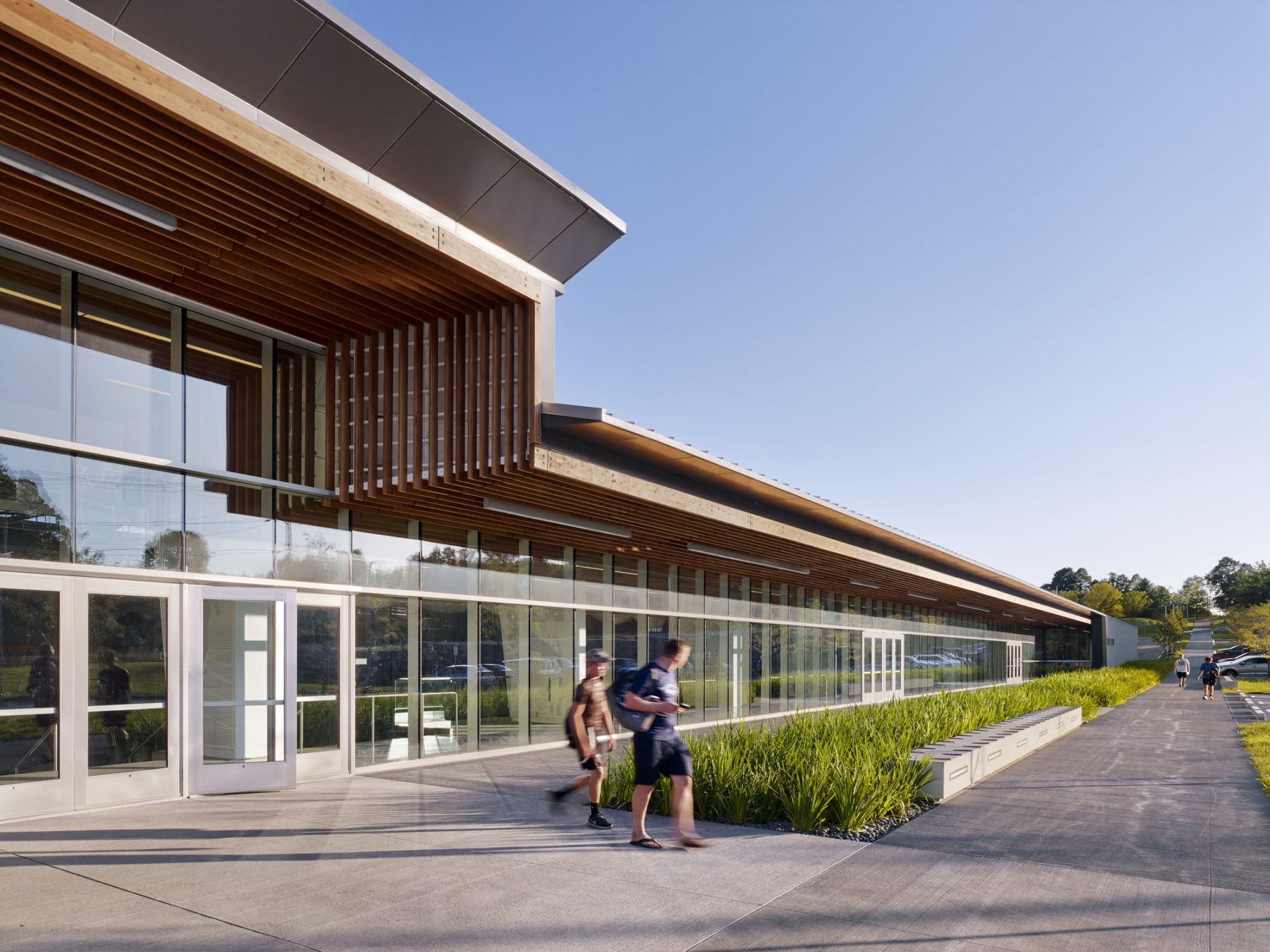
The distinctive roof line, materiality, and integration with surrounding site make the field house a welcome addition to campus
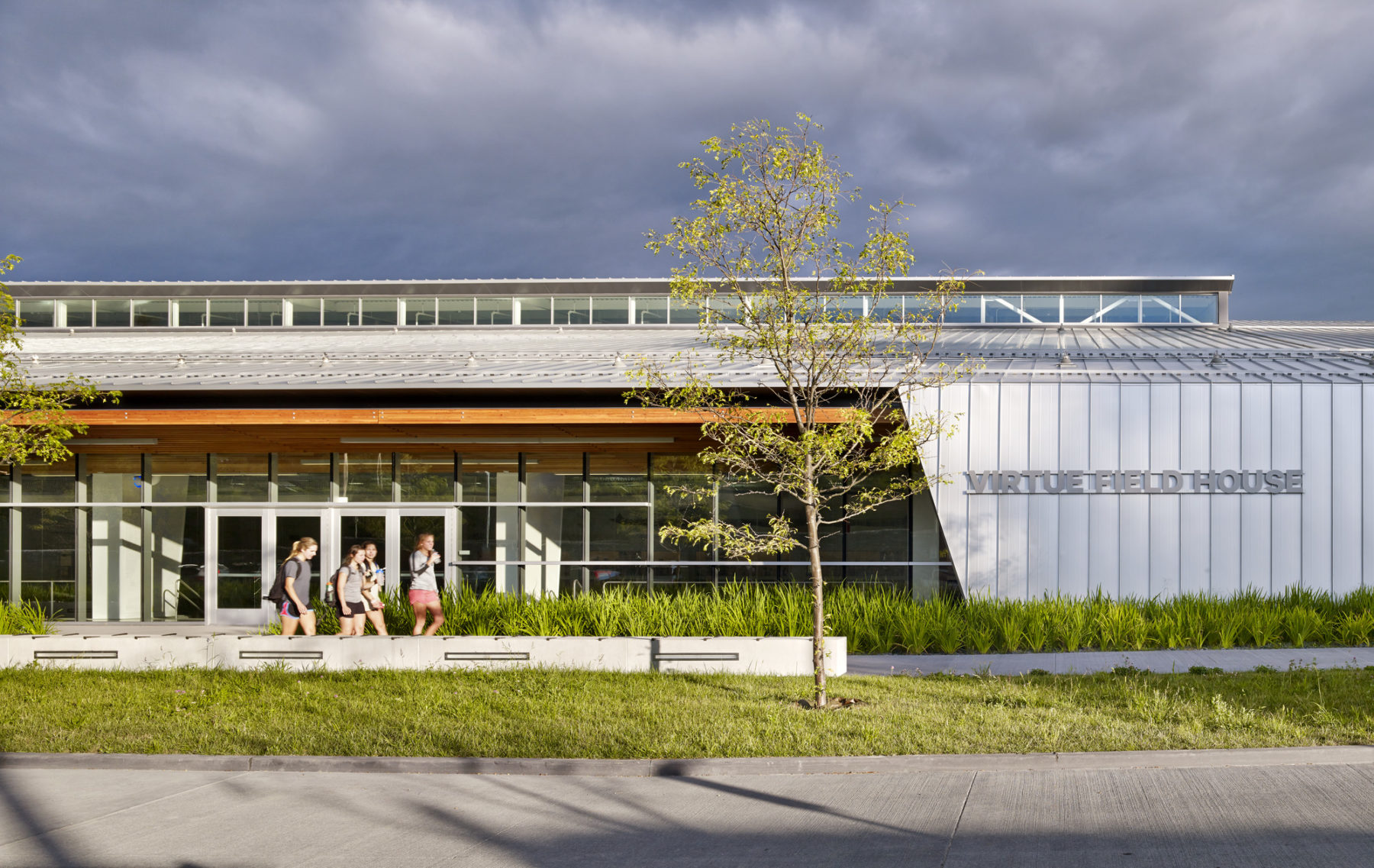
Exterior signage on the north facade celebrates the legacy of a generous alumni family
The designers employed significant glazing along the main façade—as the sun sets, the building literally becomes a beacon from the main campus
The distinctive roof line, materiality, and integration with surrounding site make the field house a welcome addition to campus
Exterior signage on the north facade celebrates the legacy of a generous alumni family
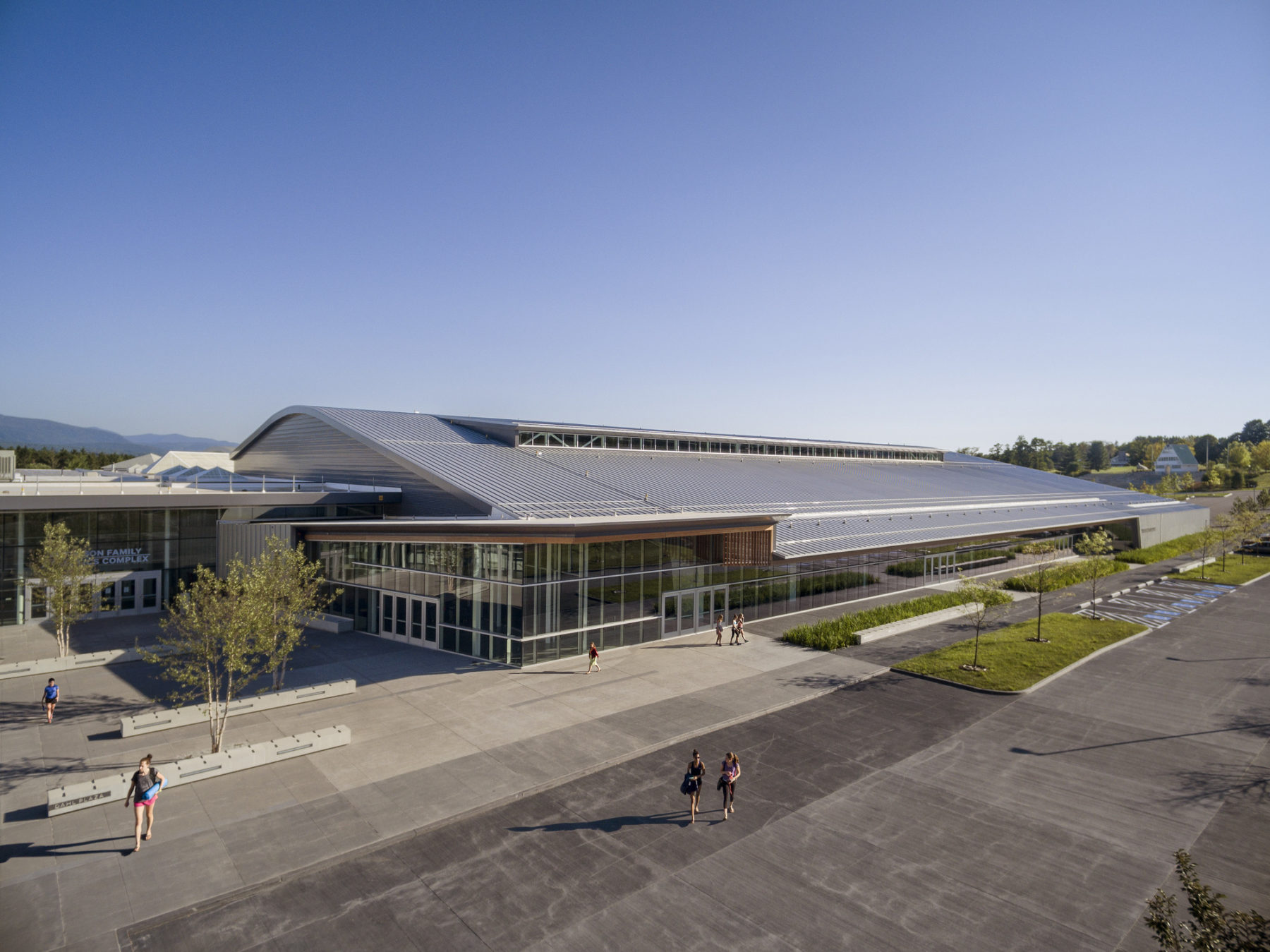
Lowering the field house 12 feet below grade mitigates the building’s significant height and mass, creating a complementary relationship with surrounding facilities and outdoor fields. A new hardscaped plaza serves as an entry forecourt to both the new field house and athletic complex of which it is a part.
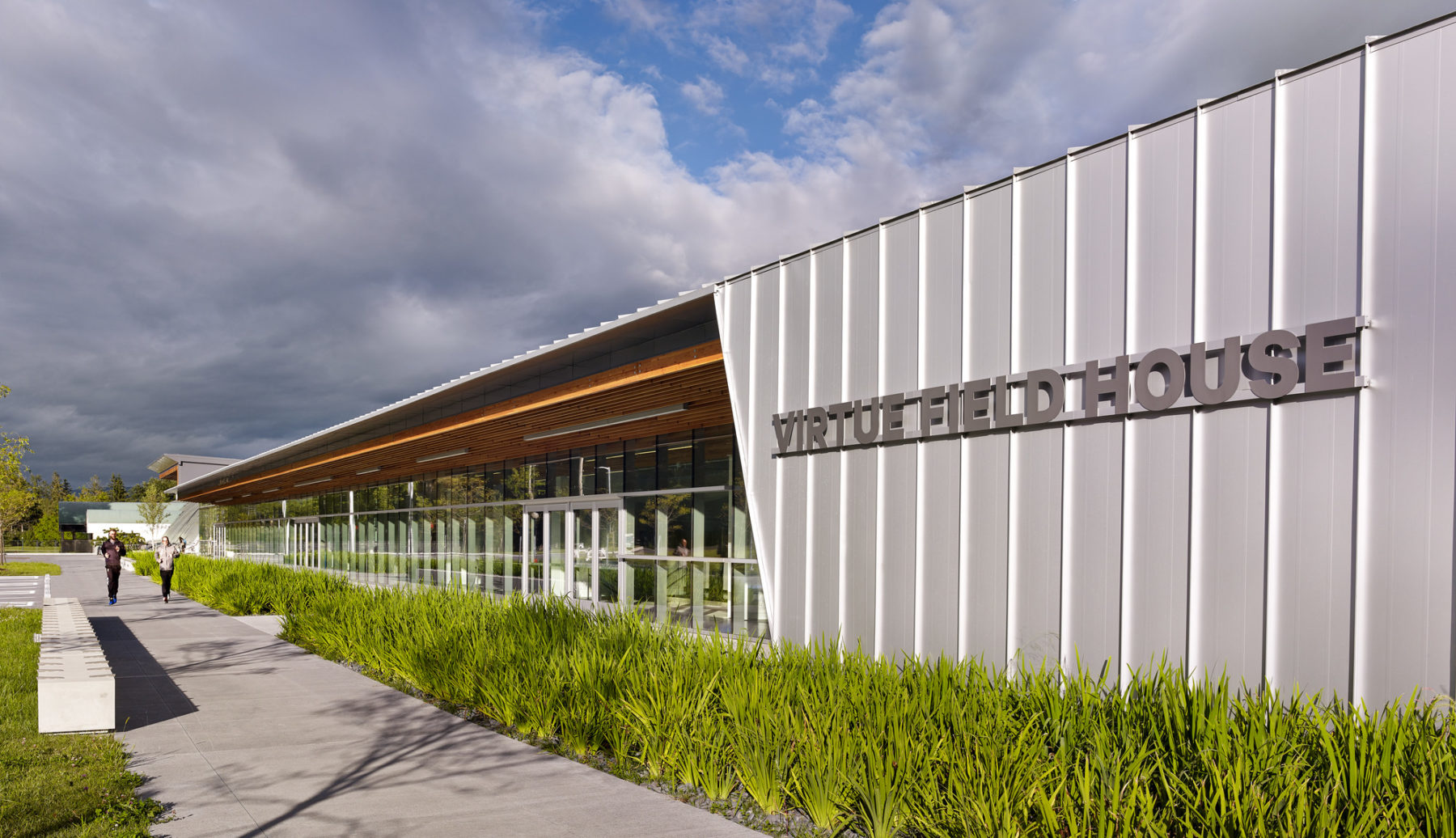
The standing-seam metal roof is translated to the building’s western edge. Looking back towards the entry plaza, a series of vertical mullions create a rhythm that animates the facade.
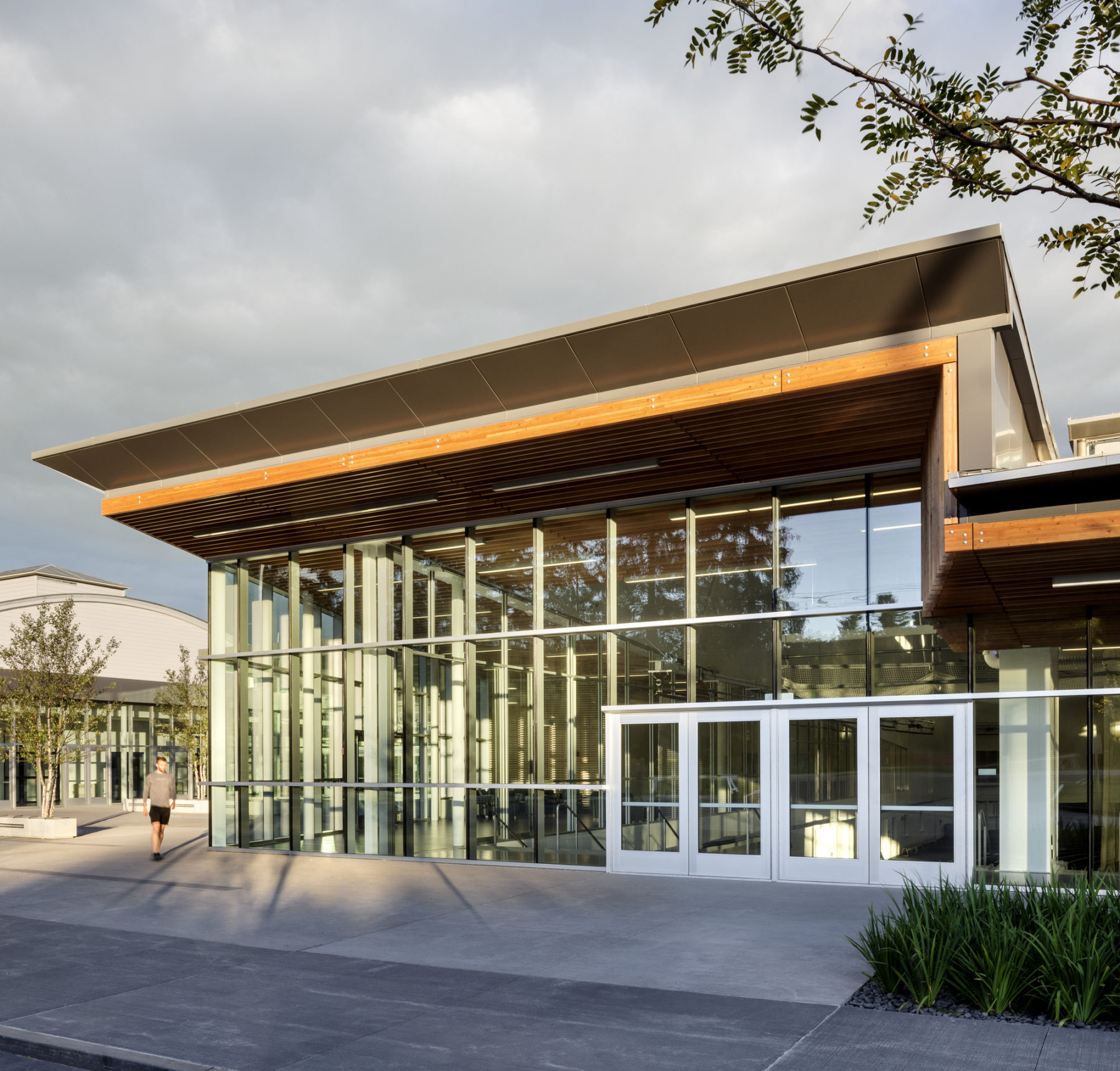
The blend of materials and forms—such as a sloping metal roof with extended clerestory monitor and glass concourse framed by wood—provide a contemporary response to the campus and region
The standing-seam metal roof is translated to the building’s western edge. Looking back towards the entry plaza, a series of vertical mullions create a rhythm that animates the facade.
The blend of materials and forms—such as a sloping metal roof with extended clerestory monitor and glass concourse framed by wood—provide a contemporary response to the campus and region
Because of the inherent large scale of field house facilities, the reduction and management of energy use was a key design consideration. Middlebury was able to experience a significant reduction in energy consumption due in part to the eight 24-foot-wide ceiling fans circulating air thereby eliminating the need for air conditioning, efficient LED lighting, super-insulated walls and ceilings, and an abundance of natural light. The Virtue Field House has achieved LEED Gold certification from the US Green Building Council.
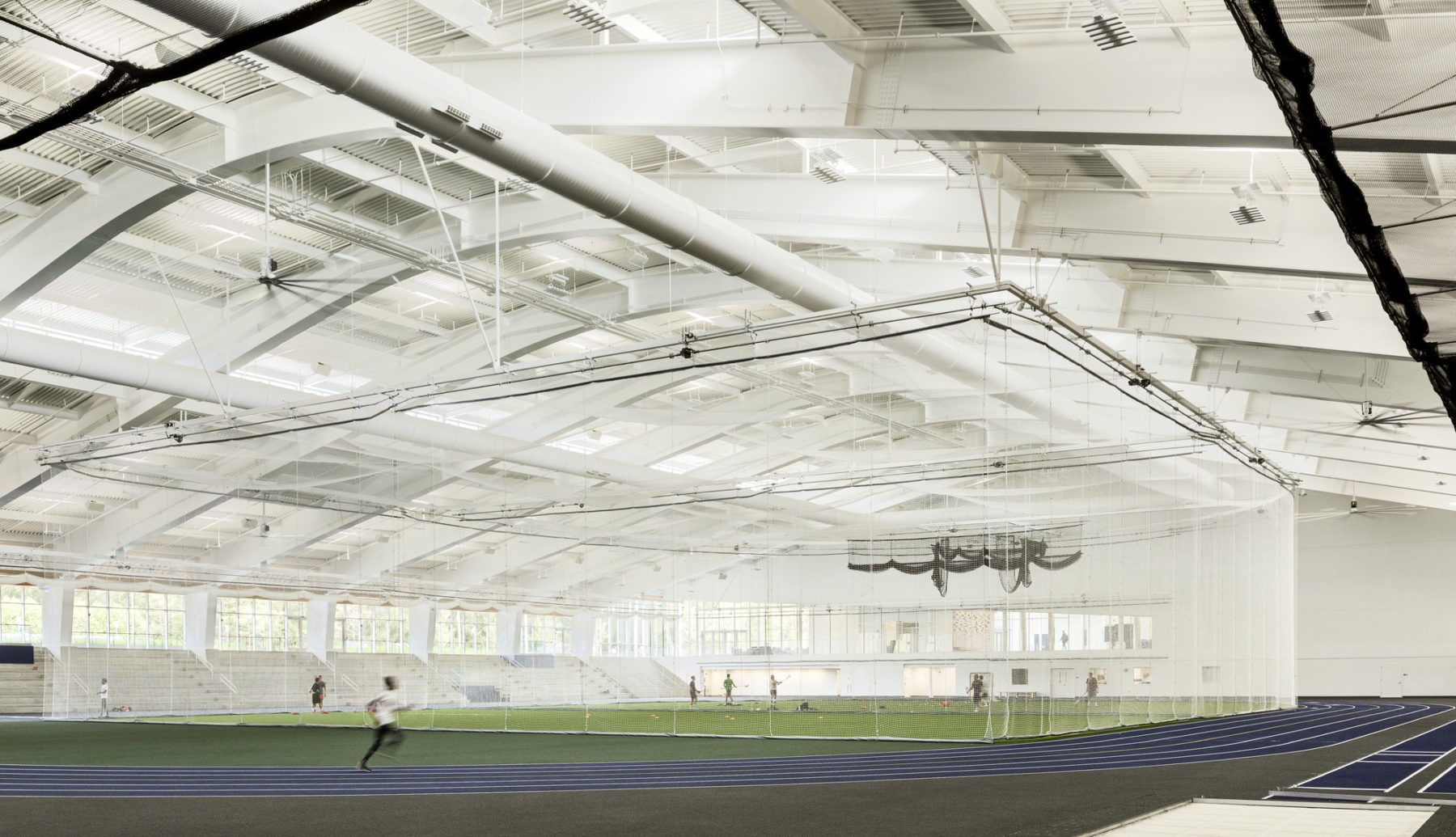
The school was able to experience significant reduction in energy consumption due in part to the eight 24-foot-wide ceiling fans circulating air, efficient LED lighting, super-insulated walls and ceilings, and an abundance of natural light to reduce the need for overhead illumination
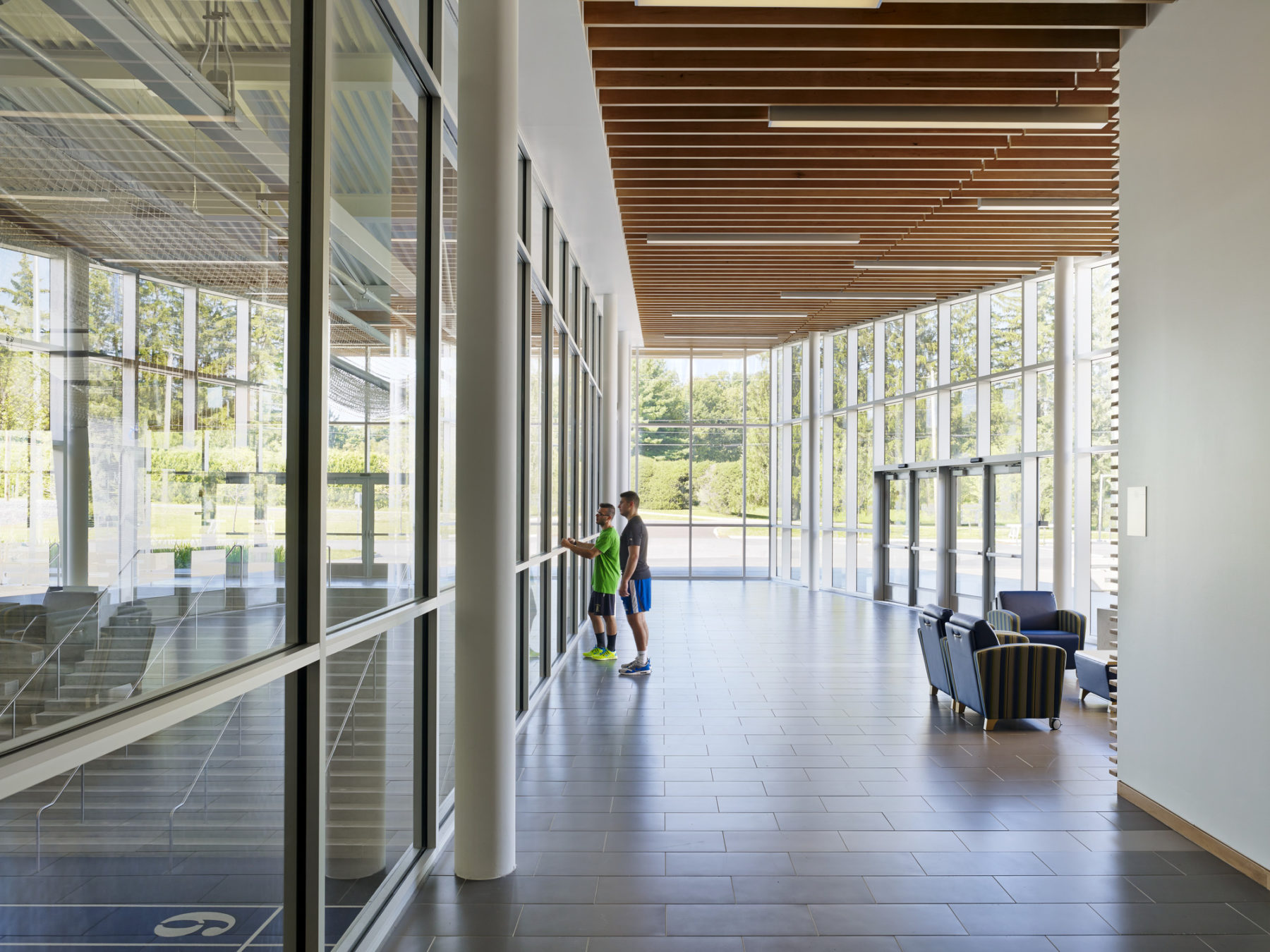
Transparency permeates the entire experience of the facility
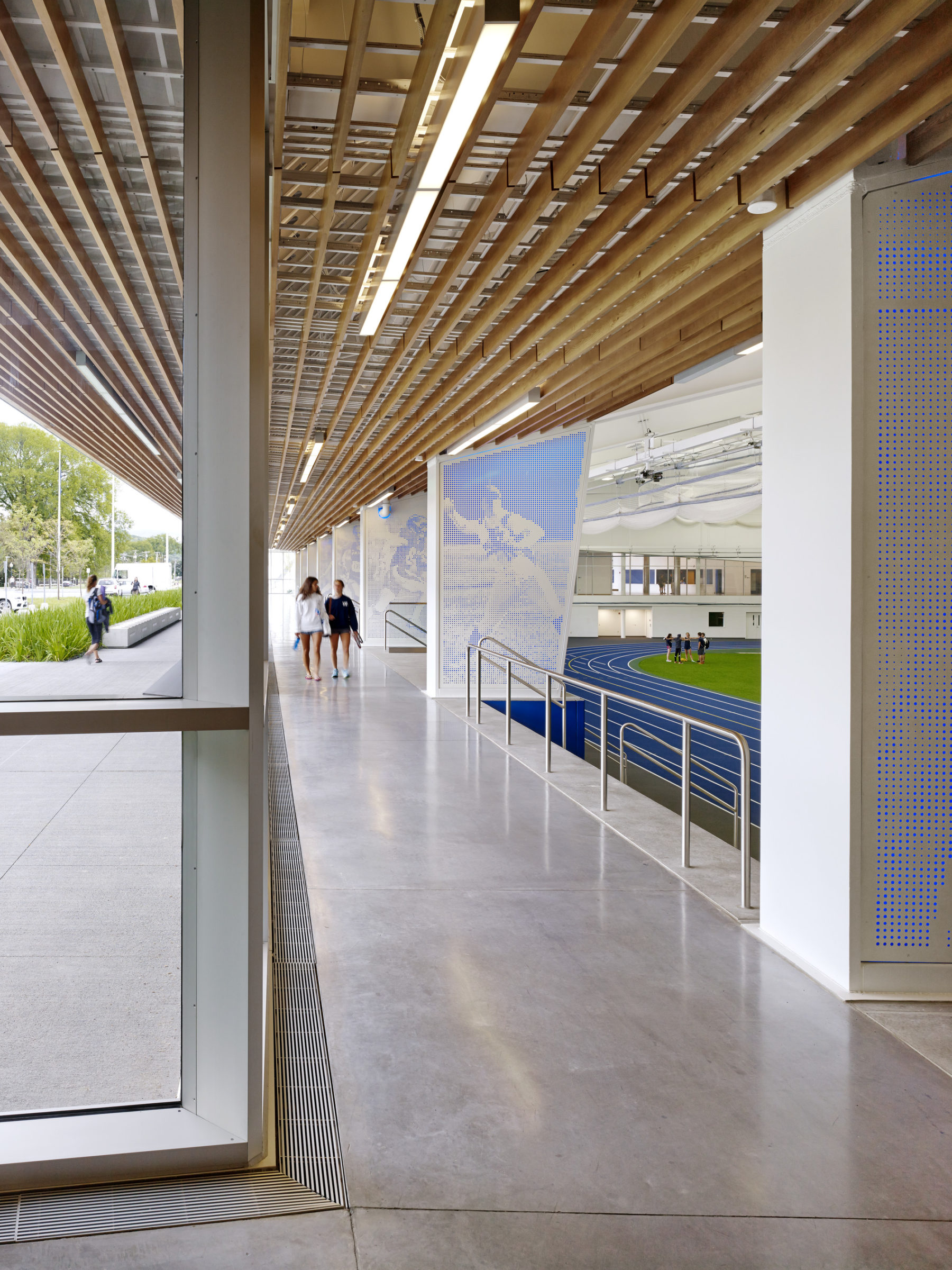
Spectators have clear views of the track and field below

